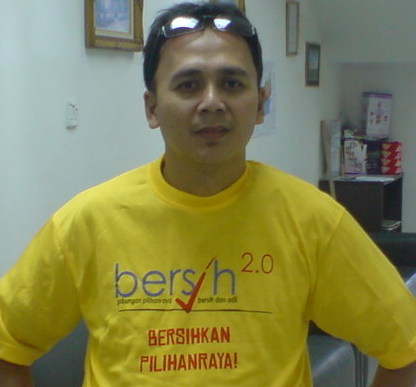On 21 June 2016, prominent Dayak land rights activist and opposition politician Bill Kayong was killed in a drive-by shooting in broad daylight at the Miri-Kuala Baram bypass, in Tudan, Sarawak state of Malaysia.
Member of the Indigenous NGO Persatuan Dayak Sarawak (PEDAS), Bill was a representative of his Dayak indigenous people. Indigenous land rights have been a contentious issue in Sarawak, part of the vast island of Borneo shared between Malaysia, Indonesia and Brunei. Activists blame the rapid expansion of palm oil plantations, rampant logging and dam-building for causing environmental damage and displacing indigenous people. Tribespeople have staged protests in the past, and have set up road blockades in a bid to stop some mega-projects. Bill had long been working with indigenous villagers trying to protect their rights to their customary land after it was handed out by the Sarawak government to an oil palm company. He was also the secretary to the PKR (People’s Justice party) Miri local branch and a former candidate for the elections in Bekenu.
Land rights activists said that Bill was involved in a land case involving a plantation company before his killing. According to Abun Sui Anyit, legal adviser of the Sarawak Dayak Association, “The firm has been trying to evict some 120 tribal families in remote Sarawak, in a dispute since 2014 which has been brought to court and a verdict is still pending. There was a confrontation between the two sides in April 2016 and Bill had gone there to help calm the indigenous people. Bill’s family is not happy because the mastermind is still at large. They want the truth, they want to know who is the person that has paid the killer”.
After a series of court ruling against the indigenous people, the Government tried to amend the Land Code. The Federal Court nullified native customary laws held by the indigenous people in Sarawak, stating that Dayak people cannot apply their native customary rights to claim virgin forests as their pemakai menoa (territorial domain) and pulau galau (communal forest reserve), explaining that these two concepts have no force of law in Sarawak.
Fellow activist Adrian Banie Lasimbang remembers Bill as an indigenous rights activist and community organizer who worked tirelessly for political change in Sarawak. According to him, “Bill actively conducted paralegal activities to raise awareness in communities facing land grabbing by big oil palm or timber companies, assisted in filing court cases, and helped mobilize communities to stage protests and blockades targeting companies that were destroying villages, communal forests, and communal areas. He was always on the front line, making him a target of companies that employ thugs or gangsters to intimidate the communities and activists alike”.
Bill leaves behind a wife and two teenage children.
Rick Jacobsen, from environmentalist NGO Global Witness, added that “The brutal slaying of land rights champion Bill Kayong shows the risks faced by activists in Sarawak who stand up to the powerful interests behind land grabbing and environmental devastation. The Malaysian authorities must take swift action to identify those responsible and bring them to justice”.
